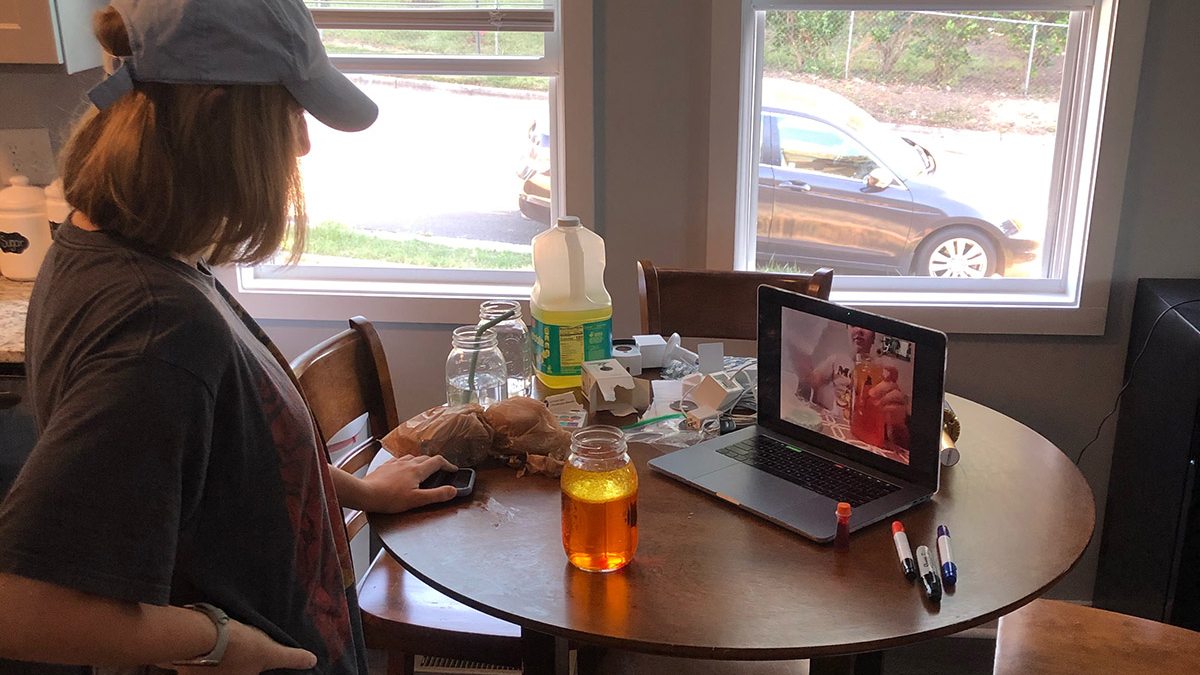Serving across a diverse spectrum
Students in an APPLES Service-learning Course called “Autism in Our Communities: An Interdisciplinary Perspective” studied topics related to autism spectrum disorder and completed service projects in partnership with individuals and communities affected by ASD.

Even when public service focuses on one cause or community, there can be myriad ways to conduct service work. Individuals can serve by cleaning up a littered beach, picking up a phone to advocate for their cause and putting on a mask to keep their community safe.
As a group of Carolina students discovered in fall 2020, service stemming from just one service-learning course can form a wide range of meaningful experiences.
This was the case for the students who leveraged technology to serve others as part of an APPLES Service-learning Course called “Autism in Our Communities: An Interdisciplinary Perspective.” Students in this course studied topics related to autism spectrum disorder and completed service projects in partnership with individuals and communities affected by ASD.
The class was taught by Lindsay Rentschler and Brian Dunlop, doctoral students in the School of Education’s Applied Developmental Science and Special Education Program. Rentschler and Dunlop aimed to build students’ awareness of the wide range of lived experiences for those diagnosed with autism. Initially, Rentschler and Dunlop were struck by the diverse histories their students had with ASD.
“Some students were recommended from Buckley Public Service Scholars with little to no experience,” Rentschler said. “Others had a sibling or a cousin or a neighbor with a deep personal connection. Others worked at different camps for people with different developmental disabilities. That made it interesting and the discussions pretty fun.”
The coursework covered topics like diagnosis and self-advocacy among people experiencing ASD. Students eventually had the chance to submit questions for expert guest panelists based on what they’d studied.
Throughout the semester, students brought the lessons and insights they gained from homework and panelists to a range of service projects. Because of the pandemic, students could no longer work with the course’s past partner, Camp Royal. Instead, the instructors posted an open call for new partnerships and were amazed by the enthusiasm of individuals, families and organizations looking for student partners.
After students and the partners were connected, they began to see just how diverse service for people in the ASD community could be. Some students partnered with children and young people affected by ASD. In these partnerships, connection and skill-building that was missing from children’s lives was a priority. Some students worked on language-building skills during online Zoom calls. Others played online games to work on conversation and math skills. Some students even created science kits to do hands-on experiments over Zoom with their partners.
Rentschler and Dunlop were impressed by their students’ creativity in designing online activities.
“The kids they were working with had a wide range of interests, so some students even dressed up and did an online cosplay of a murder mystery,” Rentschler said. “It was a fantastic experience for themselves and the children.”
Students also worked with older individuals through programs like IGNITE, which supports young adults affected by autism as they find independence in education, careers, sexuality and social settings. Others provided organizational service with The Color of Autism by coordinating family support group nights for people of color whose families are affected by autism.
Through text messages, Zoom calls and online gaming, students gained a new sense of how broadly the ASD can present and how broad service can be as a result. The course instructors were inspired by the students’ dedication to the wide variety of relationships formed through the course.
“Despite all the obstacles for connection, they all put in a lot of effort,” Dunlop said. “The students came up with creative ideas I never would have put my finger on.”




